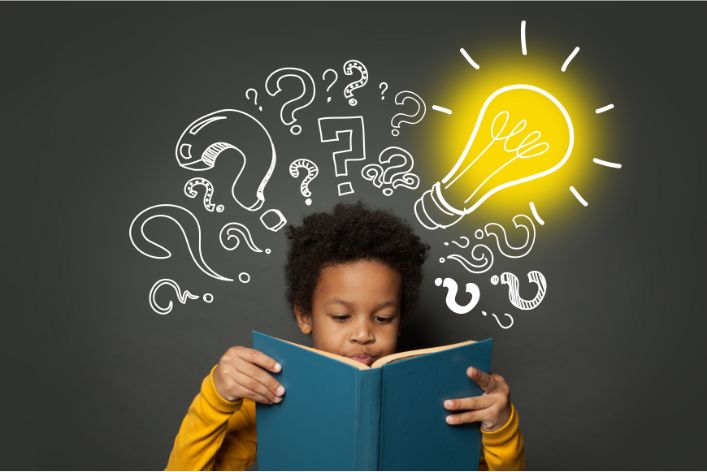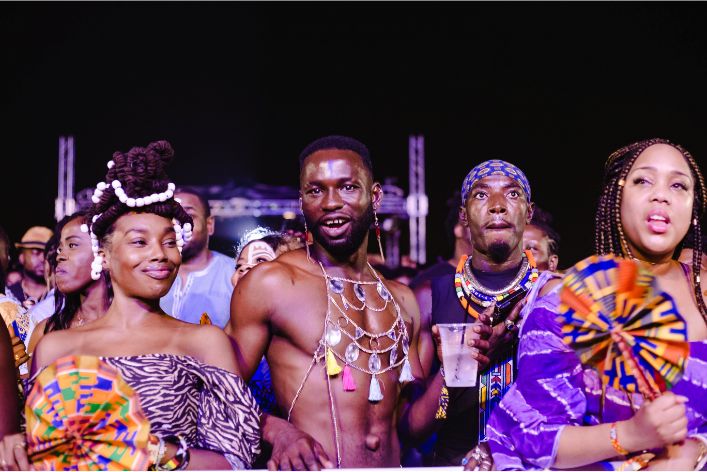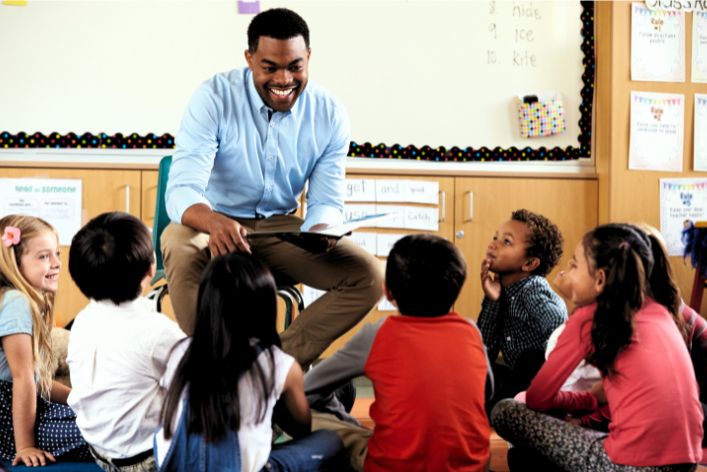Introduction
Reading is a powerful tool that can spark the imagination of children. As a parent or caregiver, it is essential to provide children with the right materials to inspire and captivate their minds. Nigerian children’s literature is filled with great books that can ignite the imagination of young readers.
Explanation of the Importance of Reading in Sparking Children’s Imagination
Reading helps to develop a child’s cognitive skills, enhances their vocabulary, and improves their comprehension. It also provides an opportunity for them to explore new worlds, characters, and experiences.
Reading exposes children to different cultures, beliefs, and ways of life, broadening their horizons and expanding their imaginations.
Brief Overview of Nigerian Children’s Literature Scene
Nigeria’s children’s literature scene boasts diverse works by renowned authors like Chinua Achebe, Buchi Emecheta, and Wole Soyinka.
Nigerian children’s books encompass fiction and non-fiction, exploring themes of family, culture, history, and adventure.
Notable books include Nnedi Okorafor’s “Chicken in the Kitchen,” Elnathan John’s “Halima and the Scorpions,” and Sarah Ladipo Manyika’s “Beware, Beware of the Big Bad Snake.”
Generally, Nigerian children’s literature offers a great opportunity for parents and caregivers to ignite the imagination of young readers.
By exposing them to diverse works, children can develop empathy, critical thinking skills, and a deeper understanding of the world around them. As adults, we should encourage and promote a reading culture among young children.
Nigerian Children’s Literature
Nigeria is a country that is rich in culture, tradition, and diversity. It is also home to a vibrant literary scene, with authors who have made significant contributions to the world of children’s literature.
Let’s take a look at Nigerian children’s literature, its brief history, notable authors, popular themes, and top books to spark imagination.
Brief History of Nigerian Children’s Literature
Nigerian children’s literature has come a long way since its inception in the early 20th century. In the early days, there were very few books available for children, and they were mainly imported from Europe. However, in the 1960s, with Nigeria’s independence, there was a renewed interest in indigenous literature.
Notable Nigerian Authors and Their Impact on Children’s Literature
Several Nigerian authors have made significant contributions to the world of children’s literature. Chinua Achebe, the author of “Things Fall Apart”, penned “Chike and the River”, while Wole Soyinka, Nigeria’s first Nobel laureate, wrote “The Lion and the Jewel”.
Other notable Nigerian authors who have made significant contributions to children’s literature include Buchi Emecheta, Amos Tutuola, and Cyprian Ekwensi.
Popular Themes in Nigerian Children’s Books
Nigerian children’s books tend to focus on themes that are relatable to young readers, such as family, friendship, education, and adventure. Many books also explore aspects of Nigerian culture and tradition, such as folklore, mythology, and history.
Read: Tips for Planning a Family Beach Day in Nigeria
Parenting Made Just for You
Get personalized Parenting Solutions tailored to your child’s needs. Transform your parenting journey with expert guidance in 1-3 days.
Get StartedTop Nigerian Books for Children to Spark Imagination
- “Anna Hibiscus” by Atinuke: This book follows the adventures of Anna Hibiscus, a young girl who lives in a bustling city in Africa. It is a heartwarming tale that highlights the importance of family and community.
- “The No. 1 Car Spotter” by Atinuke: This book tells the story of a young boy named Oluwalase Babatunde Benson, also known as No. 1, who is determined to help his family make ends meet by fixing cars.
- “Half of a Yellow Sun” by Chimamanda Ngozi Adichie: Though not strictly a Children’s book, young adults interested in historical and real-life literature could find this book recommended.The book narrates the experiences of two sisters entangled in Nigeria’s civil war during the late 1960s.
- “The Girl Who Can” by Ama Ata Aidoo: This book tells the story of a young girl named Mesh and her quest to prove that girls can do anything boys can do.
- Ndidi Enenmor’s book, “The Triangle of Truth”: Delves into themes like bullying, self-esteem, and the impact of words. The story follows Tola, a young girl facing bullying at school, as she discovers her inner strength.
In essence, Nigerian children’s literature is a rich and diverse world with something for everyone. From heartwarming tales of family and community to stories of adventure and exploration, Nigerian authors have created a broad array of stories that are sure to captivate young readers.
We hope that this list of top Nigerian books for children sparks your imagination and inspires you to explore the world of Nigerian children’s literature further.
Read: Music Lessons for Kids in Nigeria: A Parent’s Guide
Criteria for Selection
When selecting books for children, it is important to consider several factors to ensure that they not only captivate their imagination and stimulate their creativity but also offer valuable learning opportunities. Here are key factors we considered when selecting the top Nigerian books for children.
The Intended Age Range for the Books
The chosen books had to be age-appropriate and cater to the developmental needs of the children. We considered books for different age ranges, including toddlers, preschoolers, and primary school children.
Toddlers books feature minimal text, repetition, and bright visuals while primary school books had longer stories with more challenging vocabulary.
Factors Considered When Selecting the Books
We selected books that were not only fun to read but also offered important life lessons, from Nigerian culture and traditions to history and values. A significant factor was readability; the books had to have a simple yet engaging writing style to keep children interested.
Additionally, we considered books that were well-illustrated to pique the interest of the children and support their learning.
Importance of Representation in Children’s Literature
Representation and diversity in children’s literature are vital in shaping their mindsets. Children should be able to read books that reflect their own culture or that of others. Representation allows children to see themselves in the story and is an essential foundation to promote a strong sense of identity.
Moreover, it helps children to respect and appreciate other cultures and ways of life, creating a more inclusive society.
Read: Creative Art and Craft Ideas for Nigerian Parents

Top Nigerian Books for Children to Spark Imagination
Here are some of the top Nigerian books for children that tick all the criteria for inspiring curiosity and sparking imagination.
“Amadi’s Snowman” by Katia Novet Saint-Lot, Illustrated by Dimitrea Tokunbo
This beautifully illustrated book takes children on an adventure with Amadi as he set outs to build a snowman. It explores the themes of perseverance, resourcefulness, and kindness while exposing children to Nigerian culture and traditions.
“Chicken in School” by Ayobami Adedeji, Illustrated by Bee Grand
This fun and educational book follows the story of a mischievous chicken, Koko, who goes to school with her owner. The story teaches children the value of responsibility, friendship, and the importance of education.
Unveil the Perfect Name that Tells Your Family's Story
Let us help you find a name that embodies your family's values, traditions, and dreams. Our personalized consultation weaves cultural insights to create a name that's uniquely yours.
Get Started“The Alphabet of Akwa Ibom People” by Paula Ibiwemi
This educational book is a great tool for teaching children about the Akwa Ibom state in Nigeria. It features illustrations, facts, and stories about the culture and traditions of the people, as well as a playful introduction to the alphabet.
“Mama’s Bible Stories – The Story of Baby Moses” by Mama Kwube
This book is an excellent introduction to the story of Moses for children. It captures the story of Baby Moses being saved and raised by Pharaohs’ daughter, offering an opportunity to discuss African history and morality lessons.
“Jabari Jumps” by Gaia Cornwall
Though not necessarily Nigerian, this book offers a great representation of diversity and culture, empowering children to reach new heights.
The book follows the story of Jabari, who is struggling to overcome his fears to jump into the pool. The book not only teaches children the importance of facing fears but also features African American representation.
In summary, selecting the right books for children is essential for fostering a love for reading and learning. It’s vital to choose age-appropriate books that engage children while promoting cultural diversity and empathy. The listed Nigerian books are ideal for developing children’s creativity, cultural knowledge, and moral values.
Read: Cooking Nigerian Dishes with Kids: Fun & Learning
Top Nigerian Books for Children to Spark Imagination
Reading is one of the best ways to expand a child’s imagination and inspire creativity.
Nigerian literature is filled with captivating stories that can engage children while also teaching them about their culture and history.
Here are some of the top Nigerian books for children:
“Amadi’s Snowman” by Katrin Hergt
This delightful book tells the story of a young boy named Amadi who wishes to build a snowman with his friends. However, he lives in a warm climate, and snow is hard to come by. Despite the odds, Amadi remains determined and uses his imagination to make his dream a reality.
“The Magic of the Mask” by Onuora Nzekwu
This classic Nigerian tale follows the journey of a young boy named Obi and his magical mask. Along the way, he encounters many challenges and learns important life lessons about bravery, respect, and responsibility.
“Chike and the River” by Chinua Achebe
This timeless novel tells the story of a young boy named Chike who dreams of crossing the Niger River. Despite the dangers and obstacles in his way, Chike remains determined to achieve his goal and embark on a new adventure.
“The Leopard’s Drum” by Jessica Souhami
The story follows a clever leopard who cunningly steals a magical drum from a group of animals.
When the other animals demand its return, the leopard employs his wit and resourcefulness to outsmart them.
“Who is King?” by Omo Uwaifo
This engaging story follows a group of animals who debate who should be their king. As each animal tries to prove their worthiness, they discover that true leadership requires more than just power and strength.
These Nigerian books for children are just a small sample of the many wonderful stories that are available. By introducing children to diverse literature, parents and teachers can help spark their imagination and encourage a lifelong love of reading.
Read: Unforgettable Family Road Trips Around Nigeria
Conclusion
Nigerian children’s literature is essential to the development of children’s imagination. Reading can help spark their creativity, imagination, and critical thinking skills.
In addition, reading can also teach them about Nigerian culture, values, and traditions, which they can pass on to future generations.
Summary of the Importance of Nigerian Children’s Literature
Nigerian children’s literature is a rich source of knowledge and creativity. It reflects the culture and traditions of Nigerian people and inspires children to become proud of their heritage.
The literature is also important in nurturing the growth of children’s intellect, creativity and imagination. Through reading, children can develop social and emotional intelligence, which are crucial for their development.
How Reading Can Help Spark Children’s Imagination
Reading is an excellent way to spark children’s imagination, creativity, and critical thinking skills.
Through books, children are transported to imaginary worlds where they can explore new ideas, meet new characters and learn about different cultures.
Reading also helps children improve their communication skills and enhances their analytical and reasoning abilities.
Final Thoughts and Recommendations
To foster a love for reading in children, parents and educators should introduce them to quality Nigerian children’s literature. They should be encouraged to read books that are age-appropriate, engaging, and relatable.
Also, it is important to incorporate storytelling into their daily activities by reading bedtime stories, playing word games, and discussing diverse topics. Finally, parents and educators should create a positive reading environment that encourages children to read, explore and be imaginative.




